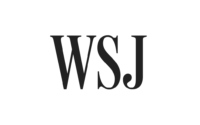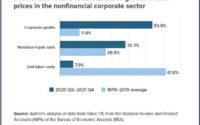BlackRock Delivers Stark Warning on US Debt Default: New Economy
(Bloomberg) — A US debt default would threaten “a basic anchor” of the global financial system and “must not happen,” BlackRock Inc. Vice Chairman Philipp Hildebrand warned Thursday at the Bloomberg New Economy Gateway Europe forum.
Most Read from Bloomberg
“All we can do is to pray that everyone in the United States understands how important the sanctity of the sovereign signature of the leading currency, of the leading bond market, of the leading economy in the world is,” Hildebrand, a former president of the Swiss central bank, said during an on-stage interview. “This is not something you want to mess with.”
In the final event at the two-day gathering near Dublin, Amos Hochstein, the special presidential coordinator for global infrastructure and energy security, said that the US could begin to refill its Strategic Petroleum Reserve as soon at this fall — if the price is right.
The Gateway series brings together leaders from the private and public sectors to discuss the economy’s most pressing problems. This week’s event focused on the theme of “Reglobalization” — exploring the forces transforming trade and industry, from banking to aviation and energy to semiconductors.
Key Developments
-
EU Needs United Response on China-US Question, Irish PM Warns
-
Irish Finance Minister Calls for Fair Response to US Subsidies
-
Hildebrand Says Execution Key to Wrap Up UBS-Credit Suisse Deal
-
Silicon Valley’s Top EU Data Enforcer Rejects Snipes Over Speed
-
Russians Fleeing Putin a Boon to Serbia’s Economy, Brnabic Says
(All times CET)
Filling SPR Depends on Various Factors (5:30 p.m.)
“I think as we get into the early fall, if prices are in the right place, we are still 100% committed to replenishing the SPR over a period of time,” Hochstein said.
But he also cautioned that a timeline depends on a number of factors — including maintenance required on the infrastructure and how well the Biden administration can manage a congressionally mandated sale of 26 million barrels by June 30. The US has said it wants to sell at a price target of $70 a barrel. West Texas Intermediate futures declined to about $77 on Thursday.
Serbia Benefits From Russians Fleeing Putin (5 p.m.)
Tens of thousands of well-educated Russians have resettled in Serbia after fleeing Vladimir Putin’s war on Ukraine, Prime Minister Ana Brnabic said, describing the phenomenon as a boon for the Balkan nation’s economy.
The biggest former Yugoslav republic has supported declarations condemning Russian aggression but stopped short of joining Western sanctions against the Kremlin. Brnabic explained the policy as stemming from Serbia’s own negative experience during Yugoslavia’s bloody breakup in the 1990s, when the country was subject to international isolation and punitive sanctions.
“Our people feel strongly against sanctions,” she said, adding that “our view is that sanctions do not actually diminish a country’s capacity or willingness to wage a war.”
Crypto Regulation Not Impossible But Hard to Achieve (4:30 p.m.)
The crypto sector’s recent string of bankruptcies, fraud scandals and market collapses have spurred global regulators to get a handle on the sector — a feat that while at odds with the industry’s core tenets, isn’t impossible to achieve, according to industry executives and observers.
“It’s true that the US is having a really difficult time struggling with how to regulate the space, but that is not to say that other countries aren’t taking a first-mover approach,” Teana Baker-Taylor, vice president of policy and regulatory strategy for Europe and the UK at stablecoin operator Circle, said on a panel. She pointed to the UK, Japan and Singapore as frontrunners, as well as the European Union which on Thursday approved the its first bloc-wide crypto regulation.
“It’s really a call to action in the US to try and figure out what they’re going to do before people start leaving the jurisdiction for other jurisdictions that have figured this out,” Baker—Taylor said.
Ireland Urged to Relax Visa Restrictions (4:15 p.m.)
A vice president of Google urged the Irish government to relax “quite severe” visa restrictions, particularly for workers from India, as companies battle for talent in an increasingly tight global labor market.
“If there are any barriers to immigration or migration around the world that of course affects companies that depend on the slick movement of people,” Google’s David Sneddon said on a panel, adding that this a manageable challenge for the company.
Similar sentiment was shared by Amir Marandi, CEO of Zaver, and Elizabeth Rossiello, founder of AZA Finance. They both said workers need to be incentivized to enter new economies. Rossiello also said employers need to adapt to new employee expectations in the aftermath of the Covid-19 pandemic.
Need for ‘Zero-Trust’ Approach After Pentagon Leak (4 p.m.)
Cybersecurity experts called for limits on access to classified information within the security services following the biggest US leak of closely held documents in a decade. Palo Alto networks CEO for EMEA and LatAm Helmut Reisinger called for “a zero trust approach.”
Kolinda Grabar Kitarovic, a former president of Croatia who has also worked at NATO, said that a move away from a need-to-know basis was a factor in the recent leak of classified US Department of Defense documents onto social media platform Discord.
“I’m actually quite surprised that we don’t have more leaks like that,” she said on a panel. “Our expectation has to be that there will be more.”
Steel Industry ‘Escaping Proper Climate Scrutiny’ (3 p.m.)
The steel industry is not getting enough attention as a “massive polluter,” according to an green transport expert. Rachel Muncrief, deputy director of the International Council on Clean Transportation, also urged policymakers to focus on the full supply chains of technologies such as electric cars when considering how to speed up decarbonization.
She said that “five pieces of the puzzle” need to be in place to speed up the shift to net zero: ensuring commitments from industry and government, creating regulatory targets for suppliers of green technologies, encouraging demand for these products, building the infrastructure to support them, and implementing fiscal incentives.
Hildebrand Doesn’t See Rate Cuts This Year (1:30 p.m.)
Addressing the broader economy, Hildebrand said he saw no scenario in which interest-rate cuts would happen this year, noting that core inflation and labor costs will remain tight, and that cracks could appear in the commercial real estate sector. He also dismissed concerns about Europe having a structural banking problem, saying that he wasn’t worried about systemic risk.
Whether the union of Credit Suisse and UBS functions smoothly will all come down to execution, he said. Given that Switzerland has historically had several large banks, the transition to a single one will come with an intense and emotional national discussion, especially since the banks involved have very different cultures, he predicted.
Irish PM Hopes UK Will Seek Closer EU Ties (1 p.m.)
Irish Prime Minister Leo Varadkar said he hopes the UK will one day seek a closer relationship with the EU, although rejoining the bloc as a full member remains “a remote prospect.”
“Brexit will never just be done and will require constant negotiations, constant alterations to the relationship,” Varadkar said during an on-stage discussion with Bloomberg’s Stephanie Flanders.
“It’s not impossible in my view that a future British government — maybe not the next one, maybe not the one after that — will seek a closer relationship with the European Union again,” he added. “It might involve a revision of the Trade and Cooperation Agreement to have a closer relationship and that’s something the door will always be open to.”
Tech Watchdog Rejects Snipes Over Speed (12:30 p.m.)
Big Tech’s top privacy watchdog in the EU took aim at critics who blame her office for taking far too long to issue rulings against Silicon Valley firms.
“Some of the people that comment on speed, understand very little about the process of conducting an investigation, the complexity of finding the facts, the implementation of fair procedures in the process,” Helen Dixon, Ireland’s Data Protection Commissioner, said during a panel.
The EU’s General Data Protection Regulation, which took effect in 2018, empowers EU data regulators to levy penalties of as much as 4% of a company’s annual revenue for the most serious violations. Tensions built up quickly, as the Irish watchdog was transformed overnight into the leading EU supervisor for global tech companies with a base in the nation, such as Apple Inc. and Meta Platforms Inc.
Europe, US Must Unite in Clean Tech Race (12 p.m.)
The race between Europe and the US to expand clean-technology industries should align in order to stand a chance against China, according to Ann Mettler, vice president at Bill Gates-founded Breakthrough Energy.
“The fact is, both Europe and the US are behind China in some of these areas, so it makes a lot of strategic sense for us to come together and to really accelerate,” Mettler said on a panel. “Europe and the United States should be talking about sort of a trans-Atlantic clean marketplace where we would really look to align at an early stage in the development of some of these technologies.”
The US Inflation Reduction Act is set to unleash hundreds of billions of dollars of investment for technologies including renewable power, EVs and green hydrogen. Its passage last year spurred European leaders to counter the American subsidies with their own plans.
Putin ‘Prepared for the Long Haul’ (11:40 a.m.)
Putin is prepared for the long haul in Ukraine and is counting on the alliance of western nations that opposes him breaking apart once the cost of supporting the government in Kyiv becomes too great, according to Kim Darroch, a former UK National Security Adviser and ambassador to the US.
“Don’t let’s think that Putin wouldn’t be prepared to do this for years and take whatever casualties — because the Russians are taking much, much higher casualties than the Ukrainians — are necessary to win,” Darroch said during a panel discussion.
NATO Expansion ‘Major Blow’ for Putin (11:30 a.m.)
Finland and Sweden’s applications to join the North Atlantic Treaty Organization represent a major blow to Putin, Croatia’s Kitarovic said on the same panel.
“Finland and Sweden joining NATO was a big blow to Putin,” Kitarovic said. “He wanted less NATO, not more NATO at his border.”
Ireland Not Planning Swift ChatGPT Data Action (10:30 a.m.)
Dixon said that her agency is not planning any “swift move” to prohibit the processing of data by AI chatbot ChatGPT but cautioned that there is a need to look at the “range of issues and harms” arising from the use of such technologies.
“EU policymakers recognize that we need to call out some of the higher-risk use purposes” of AI “and implement very specific rules in those areas,” Dixon said in an interview with Bloomberg Radio.
European Accord on TikTok Data Use Elusive (10 a.m.)
Dixon also said that her agency has been unable to reach an agreement with its German and Italian counterparts on a draft decision it set out late last year about TikTok Inc.’s processing of children’s personal data. The draft was written in the wake of a probe into the company’s use of such data, and recommended that “a preliminary range of fines” be imposed.
“We’ve come to a point of certainty that we cannot reach agreement,” Dixon said. The case will now be transferred to the General Data Protection Regulation’s dispute resolution mechanism and a conclusion is expected in “a short number of months,” Dixon added.
The Irish watchdog is the leading EU supervisor for global tech companies with a base in the nation, such as Apple Inc. and Meta Platforms Inc.
Atlantic Bridge Upbeat on Longer-Term Outlook (8:30 a.m.)
Elaine Coughlan, a managing partner at Atlantic Bridge Capital, said she’s “very positive” about the investment outlook despite the dent to confidence both from “difficult” equity markets and the collapse of US lender Silicon Valley Bank.
“If you look at the fundamental technology sectors, the foundational technologies — quantum, semiconductors, cybersecurity — those areas have actually performed very well and there’s still a lot of investor demand,” Coughlan told Bloomberg Radio.
“In the longer term I would be very positive because of the involvement of new entrants into the market, which across Europe is government,” she added.
Eurogroup President Says China Engagement Key (4/19)
Relations with China will continue to be an important feature of how the global economy develops in spite of pressure from the US to decouple from Beijing, according to Paschal Donohoe, president of the Eurogroup of finance ministers from the single currency bloc.
“Engagement with China continues to be essential,” Donohoe said in an interview Wednesday. “There may be a different emphasis in tone but the fact that the engagement is happening is the key thing.”
The Bloomberg New Economy Daily Newsletter spotlights fast-changing trends and leading edge thinking on business and the economy, drawing on the expertise of economists at Bloomberg Economics. Sign up here.
–With assistance from Stephen Carroll, Jasmina Kuzmanovic, Stephanie Bodoni, Gregory Korte, William Mathis, Peter O’Dwyer, Francine Lacqua, Laura Benitez, Lucy White, Ellen Milligan, Stephanie Flanders and James Woolcock.
Most Read from Bloomberg Businessweek
©2023 Bloomberg L.P.
[ad_2]
Source link


